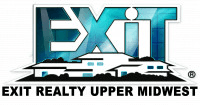Not sure if RE/MAX is right for you?
Talk to a Franchise Advisor who can match you with your perfect franchise based on your goals, experience, and investment range.
Talk to an Expert
Re/Max
How much does Re/Max cost?
Initial Investment Range
$50,500 to $293,000
Franchise Fee
$1,000 to $35,000
The franchise offered is for the operation of a RE/MAX real estate sales office, which offers a variety of real estate services to the general public.
Enjoy our partial free risk analysis below
Unlock the full risk analysis to access 9 more categories covering 100+ risks.
Re/Max April 4, 2025 FDD Risk Analysis
Free FDD Library AI Analysis Date: August 22, 2025
DISCLAIMER: Not Legal Advice - For Informational Purposes Only. Consult With Qualified Franchise Professionals.
Franchisor Stability Risks
Start HereDisclosure of Franchisor's Financial Instability
High Risk
Explanation
The franchisor's consolidated balance sheet as of December 31, 2024, shows total liabilities exceeding total assets, resulting in a negative member's equity of over $67 million. While the company returned to profitability in 2024 after a significant loss in 2023, a negative net worth is a primary indicator of financial weakness. This condition may affect the franchisor’s ability to provide support or invest in the system, posing a significant risk to franchisees.
Potential Mitigations
- A thorough review of the complete financial statements, including all footnotes and cash flow statements, with your accountant is essential.
- Discuss the implications of the company's negative equity and its reliance on future earnings to fund operations with a qualified financial advisor.
- It is important to have your attorney review any state-mandated financial assurances, such as bonds or impound agreements, that may be required due to this financial condition.
High Franchisee Turnover
High Risk
Explanation
The data in Item 20, Table 3 indicates a consistent decline in the total number of U.S. franchised outlets over the last three years, from 3,477 at the end of 2022 to 3,150 at the end of 2024. The number of outlets that “Ceased Operations - Other Reasons” is notable, with 145 in 2024 alone. This level of system shrinkage and franchisee cessation represents a significant risk and could suggest underlying issues with franchisee profitability or satisfaction.
Potential Mitigations
- A business advisor can help you calculate the annual turnover rate and compare it against real estate franchise industry averages.
- Speaking with a significant number of former franchisees listed in Exhibit E is critical to understand their reasons for leaving the system.
- Your accountant should use this data to model more conservative revenue and growth projections for your potential business.
Rapid System Growth
Low Risk
Explanation
This risk was not identified in the FDD package. While the system is large, the data in Item 20 shows a net decrease in total outlets over the last three years, which suggests the system is contracting rather than experiencing the strains of excessively rapid growth. A franchisor expanding too quickly may strain its ability to provide adequate support and training to all its new franchisees, potentially harming the brand and individual unit performance. You should still evaluate their support capacity.
Potential Mitigations
- Asking current franchisees about the quality and timeliness of the support they receive from the franchisor is a valuable due diligence step.
- It is wise to have your business advisor evaluate the franchisor's support staff-to-franchisee ratio based on the information in Item 2.
- Your attorney can help you inquire about the franchisor’s plans for scaling support services in the future.
New/Unproven Franchise System
Low Risk
Explanation
This risk was not identified in the FDD package. RE/MAX, LLC has been operating and franchising since 1974, as disclosed in Item 1. It is a large, mature, and globally recognized brand, not an emerging or unproven system. This extensive history provides a long track record of performance, though it does not eliminate other business risks. For a new system, the business model may be unproven and the brand may lack recognition, increasing the risk of failure.
Potential Mitigations
- A business advisor can help you analyze the long-term trends of any mature franchise system, including its adaptation to market changes.
- It is prudent to ask long-tenured franchisees about the evolution of the brand and the franchisor's support over time.
- Your attorney should still review the entire FDD for any risks that might be associated with a mature system, such as market saturation.
Possible Fad Business
Low Risk
Explanation
This risk was not identified in the FDD package. The core business of real estate brokerage is a long-established industry with sustained consumer demand, not a business model based on a recent or fleeting trend. While the real estate market is cyclical, the fundamental service is not considered a fad. A fad-based business carries the risk that consumer interest could decline sharply, potentially leaving you with a worthless business and ongoing contractual obligations to the franchisor.
Potential Mitigations
- A business advisor can help you assess the long-term viability and cyclical nature of any industry you consider entering.
- Understanding the franchisor's strategies for technology and marketing innovation is important for any long-term investment.
- Your accountant can help model financial performance through various economic cycles.
Inexperienced Management
Low Risk
Explanation
This risk was not identified in the FDD package. Item 2 details the business experience of the franchisor's key executives. The management team is composed of individuals with extensive and long-term experience within both the real estate industry and the RE/MAX system specifically. A lack of relevant management experience in franchising or the specific industry can be a significant risk, as it may lead to poor strategic decisions and inadequate support for franchisees.
Potential Mitigations
- It is still wise to conduct independent research on the background and reputation of key executives with your business advisor.
- Discussing the management team's accessibility and effectiveness with current franchisees provides valuable insight.
- Your attorney can help you understand the roles and responsibilities of the key personnel listed in Item 2.
Private Equity Ownership
Medium Risk
Explanation
RE/MAX, LLC is ultimately controlled by RE/MAX Holdings, Inc., a publicly traded company. Public ownership can create pressure to prioritize short-term shareholder returns over the long-term health of franchisees. This may influence decisions regarding fees, support levels, and system changes. The complex corporate structure, involving multiple entities like RMCO, LLC, also adds a layer of complexity for a franchisee to understand.
Potential Mitigations
- A financial advisor can help you review RE/MAX Holdings, Inc.'s public filings (e.g., 10-K, 10-Q) to understand its financial health and strategic priorities.
- Speaking with franchisees about any changes in the system since the company went public can provide valuable context.
- Your attorney should analyze the corporate structure to clarify the relationships and obligations between the various RE/MAX entities.
Non-Disclosure of Parent Company
Low Risk
Explanation
This risk was not identified in the FDD package. Item 1 clearly discloses the parent companies, including the ultimate public parent, RE/MAX Holdings, Inc. The audited financial statements provided in Exhibit C are consolidated for RE/MAX, LLC and its subsidiaries. The FDD appears to meet the requirement to disclose parent companies and provide their financials when necessary. Failing to disclose a parent or its financials when required can obscure the true financial health and control structure of a franchise system.
Potential Mitigations
- Your accountant should always verify that the financial statements provided match the entity you are contracting with and its parent.
- It is a good practice for your attorney to review the corporate structure described in Item 1 to ensure full transparency.
- Confirming that any guarantees from a parent company are properly documented is a crucial step for a business advisor.
Predecessor History Issues
Low Risk
Explanation
Item 1 describes a history of re-acquiring regional franchise rights from independent subfranchisors, such as RE/MAX of New York in 2016. While presented as strategic acquisitions, this history indicates the system was previously managed by different entities in various regions. This could mean that some long-term franchisees have experience under different leadership, and there could be legacy issues or practices inherited from these predecessors that affect the system.
Potential Mitigations
- Inquiring with long-term franchisees in your region about their experiences under both predecessor and current corporate management can be insightful.
- Your business advisor should help you investigate if there are any lingering integration issues from past acquisitions.
- Your attorney should confirm if any obligations from predecessor agreements could potentially affect your franchise.
Pattern of Litigation
High Risk
Explanation
Item 3 discloses extensive and highly significant litigation. RE/MAX is a defendant in multiple nationwide class-action antitrust lawsuits (known as the Moehrl-related and copycat cases) alleging that industry commission-sharing rules violate federal antitrust law. The FDD discloses that RE/MAX has entered into a $55 million settlement to resolve some of these claims, but other related lawsuits are ongoing. This represents a significant legal and systemic risk to the business model.
Potential Mitigations
- A consultation with your franchise attorney is critical to fully understand the nature and potential impact of this industry-wide litigation.
- In discussions with your business advisor, you should assess how potential changes to commission rules resulting from this litigation could affect your brokerage's business model.
- Asking current franchisees how they are adapting to the market changes stemming from this litigation is a crucial due diligence step.
Disclosure & Representation Risks
Example Risk: Franchisee Financial Obligations
Blue Risk
Explanation
This risk involves the financial obligations that a franchisee must meet, including initial fees, ongoing royalties, and other required payments. Understanding these obligations is crucial for long-term success.
Potential Mitigations
- Carefully review the Franchise Disclosure Document (FDD) and consult with a franchise attorney to fully understand all financial commitments before signing.
- Conduct regular risk assessments
- Implement monitoring and reporting systems
Unlock Full Risk Analysis
Purchase the complete risk review to see all 102 risks across all 10 categories.
Financial & Fee Risks
Example Risk: Franchisee Financial Obligations
Blue Risk
Explanation
This risk involves the financial obligations that a franchisee must meet, including initial fees, ongoing royalties, and other required payments. Understanding these obligations is crucial for long-term success.
Potential Mitigations
- Carefully review the Franchise Disclosure Document (FDD) and consult with a franchise attorney to fully understand all financial commitments before signing.
- Conduct regular risk assessments
- Implement monitoring and reporting systems
Unlock Full Risk Analysis
Purchase the complete risk review to see all 102 risks across all 10 categories.
Legal & Contract Risks
Example Risk: Franchisee Financial Obligations
Blue Risk
Explanation
This risk involves the financial obligations that a franchisee must meet, including initial fees, ongoing royalties, and other required payments. Understanding these obligations is crucial for long-term success.
Potential Mitigations
- Carefully review the Franchise Disclosure Document (FDD) and consult with a franchise attorney to fully understand all financial commitments before signing.
- Conduct regular risk assessments
- Implement monitoring and reporting systems
Unlock Full Risk Analysis
Purchase the complete risk review to see all 102 risks across all 10 categories.
Territory & Competition Risks
Example Risk: Franchisee Financial Obligations
Blue Risk
Explanation
This risk involves the financial obligations that a franchisee must meet, including initial fees, ongoing royalties, and other required payments. Understanding these obligations is crucial for long-term success.
Potential Mitigations
- Carefully review the Franchise Disclosure Document (FDD) and consult with a franchise attorney to fully understand all financial commitments before signing.
- Conduct regular risk assessments
- Implement monitoring and reporting systems
Unlock Full Risk Analysis
Purchase the complete risk review to see all 102 risks across all 10 categories.
Regulatory & Compliance Risks
Example Risk: Franchisee Financial Obligations
Blue Risk
Explanation
This risk involves the financial obligations that a franchisee must meet, including initial fees, ongoing royalties, and other required payments. Understanding these obligations is crucial for long-term success.
Potential Mitigations
- Carefully review the Franchise Disclosure Document (FDD) and consult with a franchise attorney to fully understand all financial commitments before signing.
- Conduct regular risk assessments
- Implement monitoring and reporting systems
Unlock Full Risk Analysis
Purchase the complete risk review to see all 102 risks across all 10 categories.
Franchisor Support Risks
Example Risk: Franchisee Financial Obligations
Blue Risk
Explanation
This risk involves the financial obligations that a franchisee must meet, including initial fees, ongoing royalties, and other required payments. Understanding these obligations is crucial for long-term success.
Potential Mitigations
- Carefully review the Franchise Disclosure Document (FDD) and consult with a franchise attorney to fully understand all financial commitments before signing.
- Conduct regular risk assessments
- Implement monitoring and reporting systems
Unlock Full Risk Analysis
Purchase the complete risk review to see all 102 risks across all 10 categories.
Operational Control Risks
Example Risk: Franchisee Financial Obligations
Blue Risk
Explanation
This risk involves the financial obligations that a franchisee must meet, including initial fees, ongoing royalties, and other required payments. Understanding these obligations is crucial for long-term success.
Potential Mitigations
- Carefully review the Franchise Disclosure Document (FDD) and consult with a franchise attorney to fully understand all financial commitments before signing.
- Conduct regular risk assessments
- Implement monitoring and reporting systems
Unlock Full Risk Analysis
Purchase the complete risk review to see all 102 risks across all 10 categories.
Term & Exit Risks
Example Risk: Franchisee Financial Obligations
Blue Risk
Explanation
This risk involves the financial obligations that a franchisee must meet, including initial fees, ongoing royalties, and other required payments. Understanding these obligations is crucial for long-term success.
Potential Mitigations
- Carefully review the Franchise Disclosure Document (FDD) and consult with a franchise attorney to fully understand all financial commitments before signing.
- Conduct regular risk assessments
- Implement monitoring and reporting systems
Unlock Full Risk Analysis
Purchase the complete risk review to see all 102 risks across all 10 categories.
Miscellaneous Risks
Example Risk: Franchisee Financial Obligations
Blue Risk
Explanation
This risk involves the financial obligations that a franchisee must meet, including initial fees, ongoing royalties, and other required payments. Understanding these obligations is crucial for long-term success.
Potential Mitigations
- Carefully review the Franchise Disclosure Document (FDD) and consult with a franchise attorney to fully understand all financial commitments before signing.
- Conduct regular risk assessments
- Implement monitoring and reporting systems
Unlock Full Risk Analysis
Purchase the complete risk review to see all 102 risks across all 10 categories.









